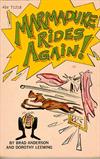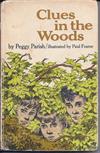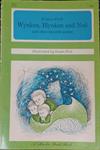
Jane Eyre (Signet Classics)
by Charlotte Brontë | Literature & Fiction | This book has not been rated.
ISBN: 0451526554 Global Overview for this book
ISBN: 0451526554 Global Overview for this book
1 journaler for this copy...
A Reader's Review:
Orphaned as an infant, Jane is taken in and cared for by her aunt, the mean spirited Mrs. Reed of Gateshead Hall. It is clear from the beginning that Mrs. Reed favors her own spoiled children and despises Jane, punishing her harshly for her perceived impudence. After a particularly cruel and unjust episode with her older cousin, John, Aunt Reed locks the ten year-old girl up in the dreaded "red-room," where her uncle died. Jane has a nervous fit as a consequence of being enclosed in a place she so fears. But not even the caring servant, Bessie, consoles her. She tells the child, "And you ought not to think yourself on an equality with the Misses Reed and Master Reed, because Missus kindly allows you to be brought up with them. They will have a great deal of money and you will have none: it is your place to be humble, and try to make yourself agreeable to them."
Mrs. Reed, no longer willing to cope with her niece, sends her away to board at the prison-like Lowood School. Charlotte Bronte and her sisters were, in fact, sent to the Clergy Daughter's School at Cowan Bridge in Lancashire. "The food was poor and insufficient and they were treated with inhuman severity." Two of the Bronte sisters actually died as a result of the treatment and the sickness contracted there. Lowood was modeled after the Clergy Daughter's Institution. Mr. Brocklehurst, the headmaster, an evangelic hypocrite, deprives his charges of basic necessities, while lining his pockets with charitable donations. There is some goodness, however, even at Lowood. Miss Temple, the kindly superintendent, mentors Jane and shows her affection. And Helen Burns, another student at Lowood, becomes her first friend. Jane is captivated by learning. Her intelligence becomes obvious to all, and despite the suffering she experiences at the school, once her education is complete, she chooses to stay on and teach.
One of the most amazing aspects of the vivid early scenes at Gateshead Hall and Lowood is that childhood, as we now understand it, simply did not exist in the 19th century. Children were seen as miniature adults, easily corrupted and inadequate, in need of stern education, discipline, and occasional corporeal punishment. Jane's strength of character becomes evident in that she is able to thrive in such sorry, often brutal, circumstances.
When Miss Temple leaves Lowood to marry, Jane places an advertisement in the local newspaper for a position as governess. She is offered a job at Thornfield Manor, where she is received by kindly housekeeper, Mrs. Fairfax. Her young charge, the precocious Adele Varens is the ward of Thornfield's owner, Edward Rochester, a brooding, passionate man with a dark past he cannot escape. He travels frequently, but when he does return and meets Jane, there is an immediate connection between the two, although there remains the great difference in their social class and ages - he is a worldly-wise forty, and she a mere nineteen. And of course, there is a terrible secret, which inevitably will cause tremendous suffering. It is at Thornfield that the reader meets a wide range of characters who will effect Jane's future happiness.
This is a dark gothic romance - in fact, "Jane Eyre" epitomizes the best of gothic, post Romantic fiction. Unlike her sisters, Charlotte rejected the convention of the beautiful heroine. While writing "Jane Eyre," she told them, "I will show you a heroine as plain and as small as myself." The young woman does blossom beautifully when she falls in love, however. Although readers tend to visualize Mr. Rochester as handsome, he is not. This is no Heathcliff. Jane's and Edward's attractiveness lies in their inner selves, and their capacity to love and grow makes them both such splendid figures.
Orphaned as an infant, Jane is taken in and cared for by her aunt, the mean spirited Mrs. Reed of Gateshead Hall. It is clear from the beginning that Mrs. Reed favors her own spoiled children and despises Jane, punishing her harshly for her perceived impudence. After a particularly cruel and unjust episode with her older cousin, John, Aunt Reed locks the ten year-old girl up in the dreaded "red-room," where her uncle died. Jane has a nervous fit as a consequence of being enclosed in a place she so fears. But not even the caring servant, Bessie, consoles her. She tells the child, "And you ought not to think yourself on an equality with the Misses Reed and Master Reed, because Missus kindly allows you to be brought up with them. They will have a great deal of money and you will have none: it is your place to be humble, and try to make yourself agreeable to them."
Mrs. Reed, no longer willing to cope with her niece, sends her away to board at the prison-like Lowood School. Charlotte Bronte and her sisters were, in fact, sent to the Clergy Daughter's School at Cowan Bridge in Lancashire. "The food was poor and insufficient and they were treated with inhuman severity." Two of the Bronte sisters actually died as a result of the treatment and the sickness contracted there. Lowood was modeled after the Clergy Daughter's Institution. Mr. Brocklehurst, the headmaster, an evangelic hypocrite, deprives his charges of basic necessities, while lining his pockets with charitable donations. There is some goodness, however, even at Lowood. Miss Temple, the kindly superintendent, mentors Jane and shows her affection. And Helen Burns, another student at Lowood, becomes her first friend. Jane is captivated by learning. Her intelligence becomes obvious to all, and despite the suffering she experiences at the school, once her education is complete, she chooses to stay on and teach.
One of the most amazing aspects of the vivid early scenes at Gateshead Hall and Lowood is that childhood, as we now understand it, simply did not exist in the 19th century. Children were seen as miniature adults, easily corrupted and inadequate, in need of stern education, discipline, and occasional corporeal punishment. Jane's strength of character becomes evident in that she is able to thrive in such sorry, often brutal, circumstances.
When Miss Temple leaves Lowood to marry, Jane places an advertisement in the local newspaper for a position as governess. She is offered a job at Thornfield Manor, where she is received by kindly housekeeper, Mrs. Fairfax. Her young charge, the precocious Adele Varens is the ward of Thornfield's owner, Edward Rochester, a brooding, passionate man with a dark past he cannot escape. He travels frequently, but when he does return and meets Jane, there is an immediate connection between the two, although there remains the great difference in their social class and ages - he is a worldly-wise forty, and she a mere nineteen. And of course, there is a terrible secret, which inevitably will cause tremendous suffering. It is at Thornfield that the reader meets a wide range of characters who will effect Jane's future happiness.
This is a dark gothic romance - in fact, "Jane Eyre" epitomizes the best of gothic, post Romantic fiction. Unlike her sisters, Charlotte rejected the convention of the beautiful heroine. While writing "Jane Eyre," she told them, "I will show you a heroine as plain and as small as myself." The young woman does blossom beautifully when she falls in love, however. Although readers tend to visualize Mr. Rochester as handsome, he is not. This is no Heathcliff. Jane's and Edward's attractiveness lies in their inner selves, and their capacity to love and grow makes them both such splendid figures.









